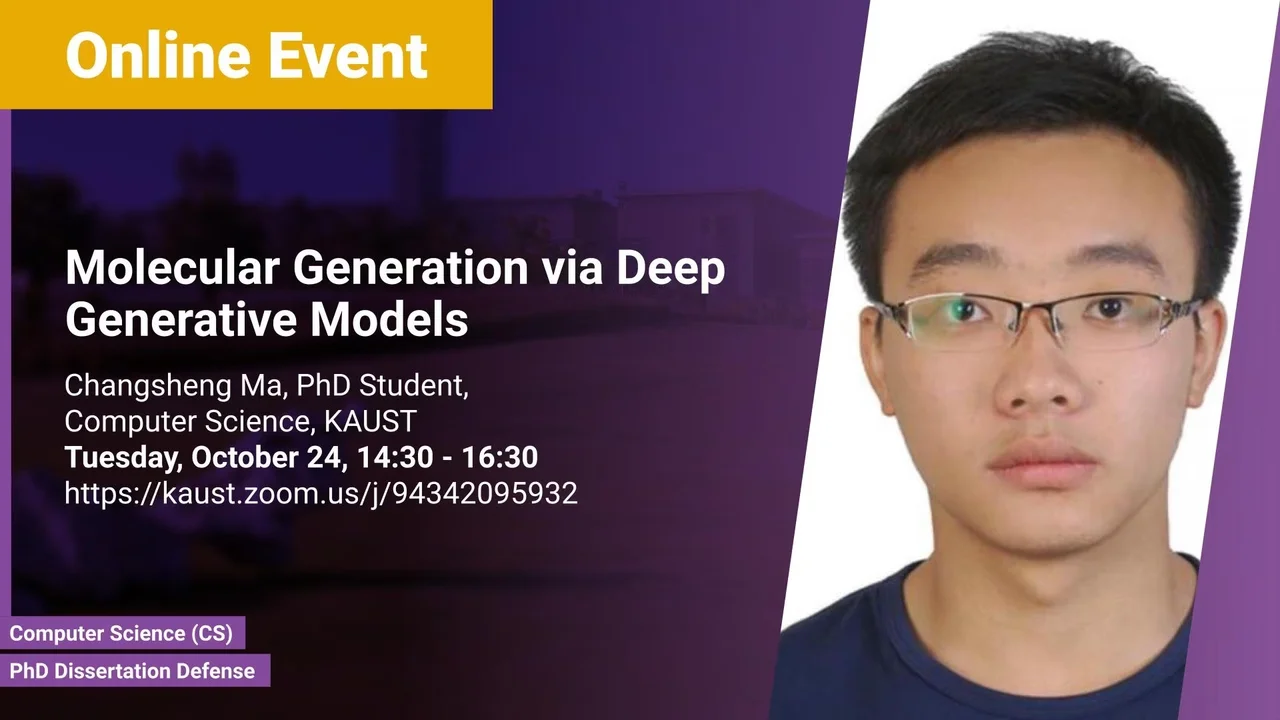
Molecular Generation via Deep Generative Models
KAUST
The field of molecular chemistry has witnessed a remarkable transformation with the integration of deep generative models. Exploring the intricate interplay between machine learning techniques and molecular generation, paving the way for novel advancements in drug discovery, materials science, and beyond.
Overview
Abstract
The field of molecular chemistry has witnessed a remarkable transformation with the integration of deep generative models. Exploring the intricate interplay between machine learning techniques and molecular generation, paving the way for novel advancements in drug discovery, materials science, and beyond. Despite significant advances in recently developed molecular generative models, there persists a series of challenges demanding resolution. This stems from the inherent nature of the molecular generation task, which requires navigating an enormous search space while adhering to the rigorous constraints imposed by the chemical valence rules. In this paper, we are dedicated to advancing the realm of molecular generative models by contributing to their speed, robustness, and interpretability. Our primary objective is threefold: firstly, to construct a time-efficient model addressing the computational burden associated with recent high-performing molecular generative models. Secondly, we introduce two distinct frameworks designed to augment robustness by effectively capturing a high-fidelity latent space of molecules. The first model involves the creation of a distribution-preserving framework through the integration of molecular graph information alongside inter-molecular relationships, a facet overlooked by previous methodologies. The second model entails the development of a guidance framework, wherein a molecular property classifier is trained to facilitate the sampling process within the molecular generation space, leading to the generation of targeted molecules, which is a new paradigm in the generation of molecules optimized for specific properties. Thirdly, we construct an interpretable molecular generative model, motivated by the aspiration to deepen our understanding of the acquired model, which constitutes an initial advancement towards imbuing interpretability within the molecular generation. The effectiveness of our proposed methodologies is validated through empirical results, obtained from comprehensive experiments conducted on well-established benchmark datasets.
Brief Biography
Changsheng Ma is a Ph.D. student in Computer Science program at King Abdullah University of Science and Technology (KAUST), Saudi Arabia. His current research interests include data mining, graph embedding, deep generative model and computational biology.

